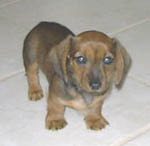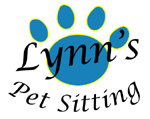Pet
sitting is an alternative to boarding your pet at the kennel or
veterinarian’s office. Pet sitters come to your home and
feed and water your pets, walk your dog, scoop the litter box,
as well as administer medications. In addition, they can provide
playtime and personal attention for your pets. Other duties they
perform include picking up your newspapers and mail, watering
houseplants, and curbing your trash can on trash day. They can
make your house look “lived in” by rotating interior
and exterior lights, and providing security for your home. Your
pet can stay in the comfort and security of their own home. Besides
caring for your pet while you’re on vacation, a pet sitter
can also transport your pet to the veterinarian, groomer, or day
care facility. In addition, pet sitters can walk your dog or let
him out to potty while you’re at work.
Some
of the questions that should be asked before setting up an appointment
with a pet sitter are the following:
1.
Are you insured and/or bonded?
2.
How long have you been pet sitting and can you give me references?
3.
How long will you spend with my pets? Will you be the pet sitter?
Some pet sitters only spend 15 minutes while others will spend
30 minutes or more for the same price.
4.
What would you do in an emergency if my veterinarian’s office
was closed?
Most
pet sitters will come to your house for an initial visit before
they actually start pet sitting. This enables them to meet you
and your pets, and become familiar with where they eat and sleep,
potty, and where the food and leashes are kept. A good pet sitter
will have an extensive questionnaire that obtains information
on your pet’s eating, sleeping, walking and exercise habits,
as well as medical history and medications. The pet sitter should
get contact information for you and for your veterinarian. Most
pet sitters require you to sign a service contract and veterinary
treatment release form at the initial visit.
Pet
sitting provides a less stressful environment for your pets as
they’re in familiar surroundings. This can be especially
true of cats. It can also be less expensive than a kennel or boarding
at the vet’s office, especially if you have multiple pets.
Finally, you have some security for your home as a pet sitter
can make your house look “lived in”.

Dogs
and cats, like humans, can get frost bitten noses, ears and paws
if left outside during freezing temperatures. Dogs that spend
time outdoors need a dry, elevated house with clean bedding and
a flap over the opening to protect them from drafts. Consider
adding a doggie door to your garage and keep a cushion in a warm
corner if you simply must leave Fido out on a cold day or night.
Increase the amount of food you feed pets who spend many hours
outdoors, they need more calories to produce body heat. Similarly,
indoor pets, who might get less exercise in the winter, need fewer
calories to stay healthy. Smaller animals, such as cats, may seek
warmth from the engine of your car when the weather turns chilly.
To prevent cats from getting seriously injured by the engine,
tap the hood before starting your car to awaken any sleeping animals.
When winterizing your vehicle, keep all chemicals safely stored
out of reach and away from pets. Anti-freeze smells and tastes
wonderful to pets, but is deadly and any spills should be immediately
cleaned up to protect your pets.
Your Pets and the Holidays
Here are a few reminders of some of the potential hazards that
you need to be aware of during the holidays. 1.
Food Poultry and steak bones and (chicken & turkey) shouldn't
be fed to your pets. Small bones can lodge in their throat, stomach
and intestinal tract. Items containing fat such as potato latkes,
gravies, and poultry skin can cause severe gastrointestinal upset.
In some pets, high fat foods can cause pancreatitis (inflamed
pancreas), which even though treated, may result in death. The
number one disease in animals over 4 years of age is obesity,
which can cause serious health problems for any pet.
Chocolate
can be potentially fatal. All chocolate, especially bittersweet
chocolate, contains a stimulant called theobromine. If your pet
ingests a large enough amount, theobromine can cause seizures
that could lead to sudden death. A small piece of chocolate could
cause seizure symptoms in a pet weighing 15 to 20 pounds.
2.
Antifreeze Antifreeze has a sweet taste and pets love it. However,
one teaspoon can be fatal to a small dog, and one lick can kill
a cat. The symptoms of antifreeze poisoning are confusion and
lack of coordination, vomiting and nausea, seizures, and even
coma or death. However, since these symptoms are similar to many
other diseases, it can make diagnosis and treatment difficult.
In
order to treat antifreeze poisoning, the veterinarian need to
know that it's been ingested. If ingestion isn't detected for
8 to 12 hours, death will probably occur. If you suspect your
pet has been exposed to antifreeze coolant, bring him or her in
for treatment immediately.
The
best way to avoid this problem is to dispose of and wipe up any
antifreeze after draining your radiator. Also, keep your pet away
from the area where the fluid was changed.
3.
Holiday Plants Poinsettias, holly, mistletoe, and Jerusalem cherries
and pine needles are some of the more common dangerous plants
found in homes around the holidays. Pine needles, if sharp enough,
can puncture your pet's intestines. Keep these out of reach of
your pet.
4.
Holiday Decorations Some cats will try to climb your Christmas
tree, so make sure it's well secured. Tree preservatives as well
as aspirin additives and sugar can cause stomach upsets in pets.
Swallowing certain ornaments such as foil icicles and string objects
such as ribbons can wrap around intestines or ball up in the stomach.
My brother's dog, a lab mix, somehow managed to get his collar
attached to the Christmas tree. When my brother got home, the
dog was dragging the Christmas tree around the house!
5.
Electrical Cords Be sure that these are secured and out of the
way so that pets aren't electrocuted.
6.
Stress and Company Keep an eye on open doors, so that "escape
artist" pets don't take off. Also, make sure that your pets
have collars and tags on in case they escape. Provide your pet
with a special quiet place with a bed or blanket that they can
go to in case the festivities get too stressful.
This
article is a summary of information from newsletters issued by
Central Texas Animal Hospital in Pflugerville, and Animal Care
Clinic in Round Rock.
If
there are any topics that you would like to get more information,
please contact me and I'll research it for you.
©
2005 Lynn's Pet Sitting. All rights reserved
